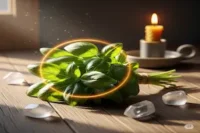Exploring the Bounty of Winter Season Vegetables in India: Discover the Nutritional Powerhouses
Published: 28 Feb 2024
Winter in India brings a bountiful harvest of delicious and nutritious vegetables. From leafy greens to vibrant root vegetables, the winter season offers a wide variety of produce that adds flavour to our meals and provides essential nutrients. In this article, I will explore the world of winter season vegetables in India, their nutritional benefits, traditional Indian recipes, seasonal availability, and farming practices.
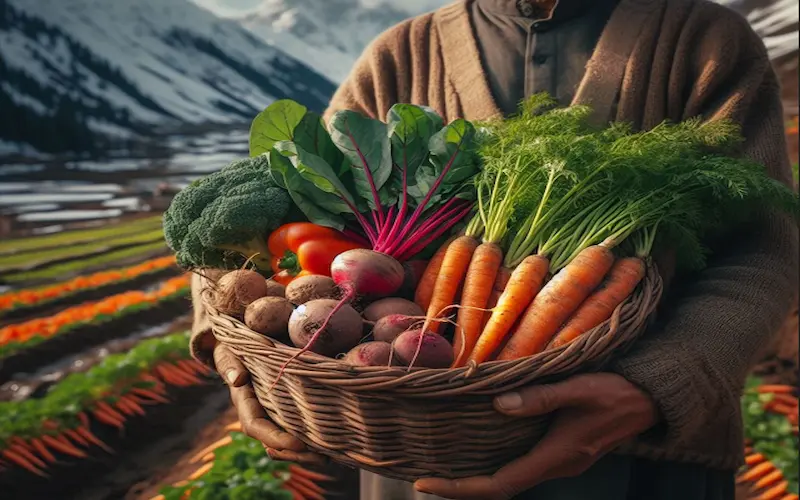
Introduction to Winter Season Vegetables in India
As the temperature drops and the air becomes crisp, the farms across India come alive with various winter-season vegetables. These vegetables thrive in the cooler weather and offer a refreshing change from the produce available during other seasons. Some popular winter-season vegetables in India include spinach, fenugreek, radish, carrot, cauliflower, green peas, and beetroot. These vegetables are rich in flavour and packed with essential vitamins, minerals, and antioxidants that promote good health.
Nutritional Benefits
Winter season vegetables are a treasure trove of nutrition. They are loaded with vitamins, minerals, and dietary fiber essential for our well-being. For example, spinach is a powerhouse of iron, calcium, and vitamin K, necessary for maintaining healthy bones and preventing anemia. Carrots are rich in beta-carotene, which is converted into vitamin A in our body and plays a crucial role in maintaining good vision. Green peas are packed with protein and dietary fiber, making them an excellent choice for vegetarians. Incorporating these vegetables into our diet can provide us with a wide range of vital nutrients for our health.
Healthy Recipes
Now that we have explored the nutritional benefits of winter-season vegetables let’s move on to some delicious and healthy recipes you can try using these power-packed ingredients.
1. Spinach and Fenugreek Soup
Ingredients:
- 2 cups of spinach leaves
- 1 cup of fenugreek leaves
- One onion, chopped
- Two cloves of garlic, minced
- One teaspoon of cumin powder
- Salt to taste
- One tablespoon of olive oil
Instructions:
- Heat olive oil in a pan and sauté the onions and garlic until golden brown.
- Add the spinach and fenugreek leaves to the pan and cook until they wilt.
- Transfer the mixture to a blender and blend until smooth.
- Return the mixture to the pan, add cumin powder and salt, and simmer for 5 minutes.
- Serve hot, and enjoy the goodness of spinach and fenugreek in a comforting soup.
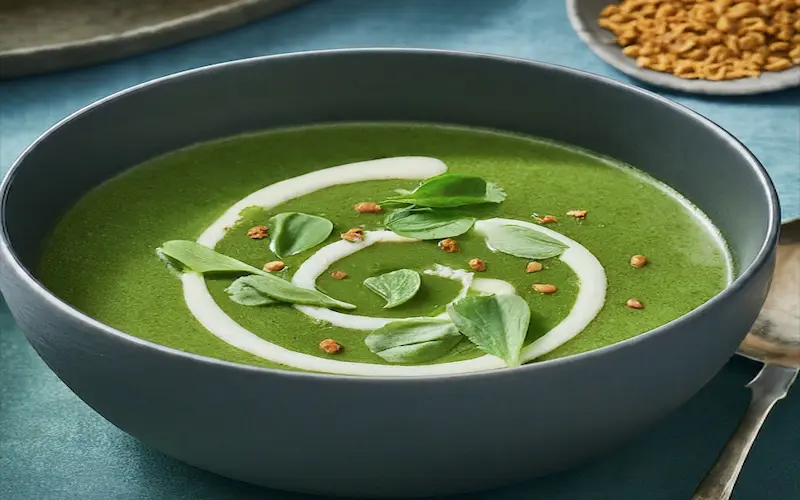
2. Roasted Root Vegetables with Herbs
Ingredients:
- Two carrots, peeled and cut into sticks
- Two beetroots, peeled and cut into wedges
- Two parsnips, peeled and cut into chunks
- One tablespoon of olive oil
- One teaspoon of dried thyme
- Salt and pepper to taste
Instructions:
- Preheat the oven to 200°C (400°F).
- Toss the carrots, beetroots, and parsnips with olive oil, thyme, salt, and pepper in a mixing bowl.
- Spread the vegetables in a single layer on a baking sheet.
- Roast in the oven for 30-35 minutes or until the vegetables are tender and slightly caramelized.
- Serve as a side dish or add to salads for flavor and nutrition.
These are just some examples of incorporating winter-season vegetables into your diet. Get creative and experiment with different recipes to explore the diverse flavors and textures these vegetables offer.
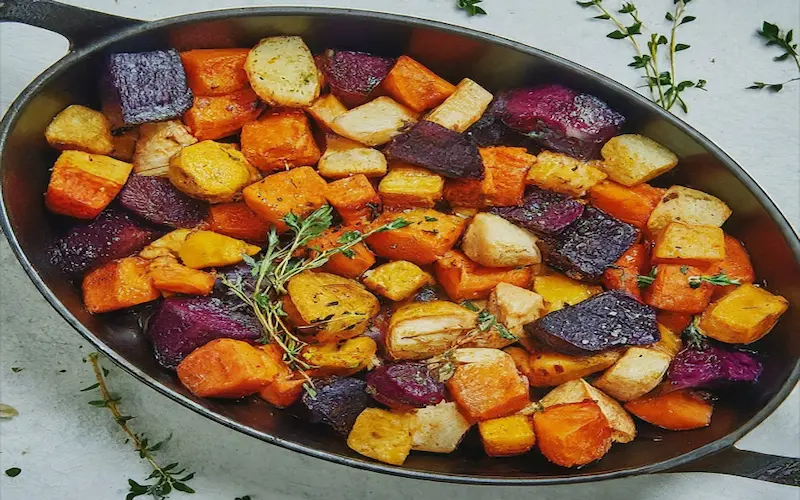
Seasonal Availability and Farming Practices
Winter season vegetables are typically available from November to February in India. The cool weather during these months provides the ideal growing conditions for these crops. Farmers employ various farming practices to ensure a successful harvest. Some of the standard techniques include crop rotation, organic fertilizers, and pest control methods. Additionally, many farmers practice sustainable farming methods to minimize chemicals and protect the environment. By understanding the seasonal availability and farming practices, we can appreciate the effort that goes into bringing these nutritious vegetables to our tables.
Vegetables in Traditional Indian Cuisine
Winter season vegetables have been integral to traditional Indian cuisine for centuries. Indian recipes often showcase the flavors and textures of these vegetables in delicious and nutritious dishes. For example, the famous dish “Sarson Ka Saag” is made from mustard greens and spinach, cooked with spices, and served with cornbread. “Gajar Ka Halwa” is a sweet dessert made from grated carrots, milk, and sugar garnished with nuts. These traditional recipes not only highlight the unique characteristics of winter season vegetables but also reflect India’s cultural diversity and culinary heritage.
Winter Season Fruits and Vegetables in India
While we have primarily focused on winter-season vegetables, it’s worth mentioning that India also offers a wide variety of winter-season fruits. Oranges, guavas, pomegranates, and apples are some of the fruits that are in season during winter. These fruits are refreshing and delicious and provide us with essential vitamins and antioxidants. We can enjoy a well-rounded and nutritious meal by incorporating both winter-season fruits and vegetables into our diet.
Winter Season Vegetables for a Healthy Diet
Including winter season vegetables in our diet is a great way to maintain a healthy lifestyle. These vegetables offer many vitamins, minerals, and antioxidants that help boost our immune system, improve digestion, and support overall well-being. Here are a few tips to make the most of winter season vegetables:
- Choose a variety of vegetables to ensure a diverse nutrient intake.
- opt for organic or locally grown vegetables whenever possible to support sustainable farming practices.
- Experiment with different cooking methods such as roasting, steaming, or sautéing to retain the nutritional value.
- Combine winter-season vegetables with whole grains, legumes, and lean proteins to create balanced and wholesome meals.
- Don’t forget to wash the vegetables thoroughly before cooking to remove any dirt or pesticides.
By incorporating these tips into your daily routine, you can make the most of the nutritional benefits of winter-season vegetables.
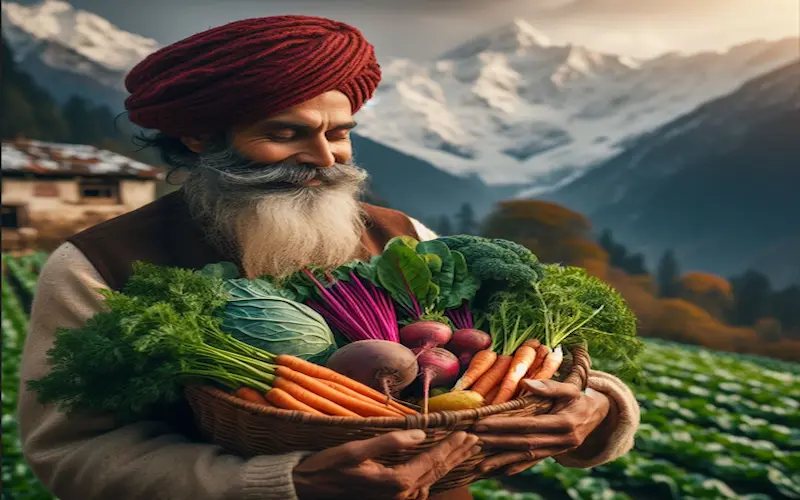
Tips for Storing and Preserving
To enjoy the flavors and benefits of winter-season vegetables for an extended period, it is essential to store them properly. Here are some tips for storing and preserving winter-season vegetables:
Store leafy greens like spinach and fenugreek in airtight containers or sealed plastic bags in the refrigerator. They can stay fresh for up to a week.
Root vegetables like carrots, beetroots, and radishes can be stored in a cool, dark place such as a cellar or a vegetable drawer in the refrigerator. They can last for several weeks if stored properly.
Green peas can be shelled and frozen in airtight bags for later use. Blanching them before freezing helps retain their color and texture.
Cauliflower can be stored in the refrigerator in a perforated plastic bag for up to a week. It is best to consume it as soon as possible as it tends to lose its crispness over time.
By following these storage and preservation techniques, you can enjoy winter-season vegetables long after their harvest season.
Conclusion:
As we conclude our exploration of winter season vegetables in India, it is evident that these nutritional powerhouses offer many benefits for our health and well-being. From the vibrant colors to the rich flavors, these vegetables have the potential to transform our meals into delicious and nutritious feasts. By incorporating them into our diet, we support local farmers and nourish our bodies with essential vitamins, minerals, and antioxidants.
Note: The information provided in this article is for educational purposes only and should not replace professional medical advice. Please consult a healthcare professional if you have dietary concerns or health conditions.

- Be Respectful
- Stay Relevant
- Stay Positive
- True Feedback
- Encourage Discussion
- Avoid Spamming
- No Fake News
- Don't Copy-Paste
- No Personal Attacks



- Be Respectful
- Stay Relevant
- Stay Positive
- True Feedback
- Encourage Discussion
- Avoid Spamming
- No Fake News
- Don't Copy-Paste
- No Personal Attacks


